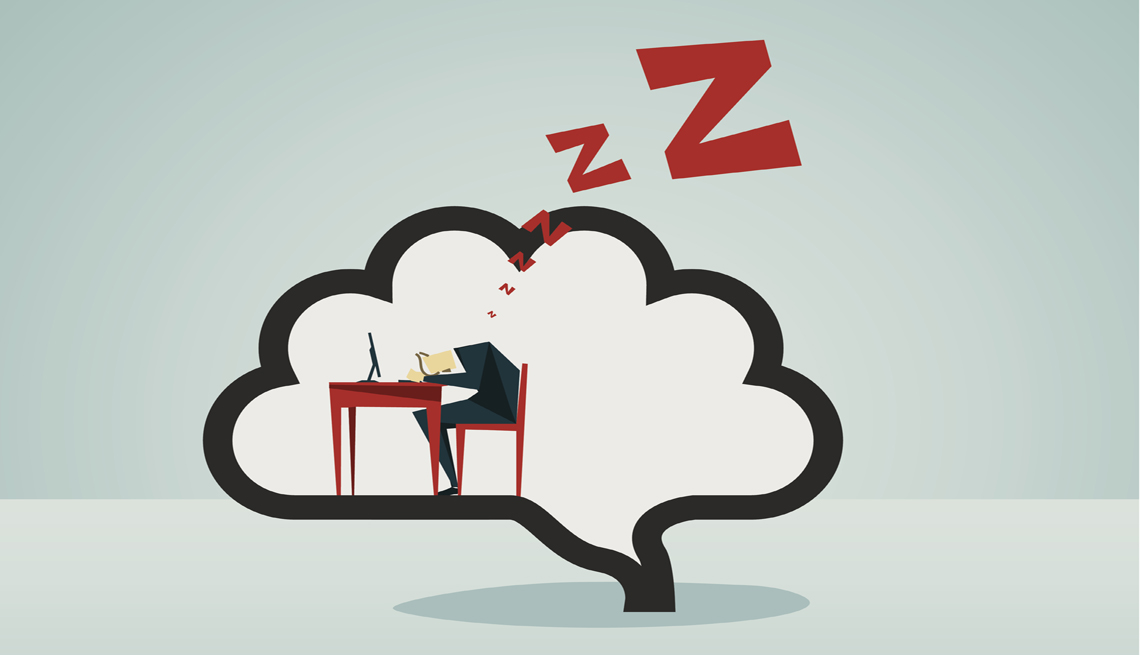
Sleep and Brain Health
- Select a language for the TTS:
- UK English Female
- UK English Male
- US English Female
- US English Male
- Australian Female
- Australian Male
- Language selected: (auto detect) - EN
Play all audios:

AARP conducted a study among 40+ adults to characterize their sleep habits, understand what keeps people awake at night, and to examine the relationship between sleep and brain health.
©iStock.com/erhui1979 Key findings include: * Nearly all adults (98%) believe that sleep is important for brain health and adults who sleep better rate their brain health better. * Those who
rate their sleep quality higher average more hours of sleep per night and have higher average mental well-being scores. * Many adults have trouble staying asleep (53%) and/or sleeping
through the night (44%). Adults who have these difficulties average less sleep per night and have lower average mental well-being scores. * A majority of 40+ adults say they are well-rested
and satisfied with the amount of sleep they get yet nearly half (48%) say they don’t get enough sleep. * Adults think they need between seven and eight hours of sleep a night to function at
their best and they indeed average seven hours of sleep per night. * The most frequently cited activities that adults engage in within an hour of bedtime are watching television and
browsing the web and one-third (34%) of adults keep a phone or electronic device by their bed. * Nearly nine in ten (88%) adults think a cool bedroom temperature is effective in helping
people sleep. Yet only two in five (41%) adults keep their room between 60 and 67 degrees. Interviews were conducted online among 2,464 adults age 40+ using GFK’s Knowledge Panel from August
31-September 14, 2016. Additional interviews were conducted among African American/Black, Hispanic/Latino, and Asian adults age 40+. The data is weighted to reflect Current Population
Survey and American Community Survey benchmarks. For more information, contact Laura Mehegan at [email protected]. For media inquiries, contact Greg Phillips at [email protected].
